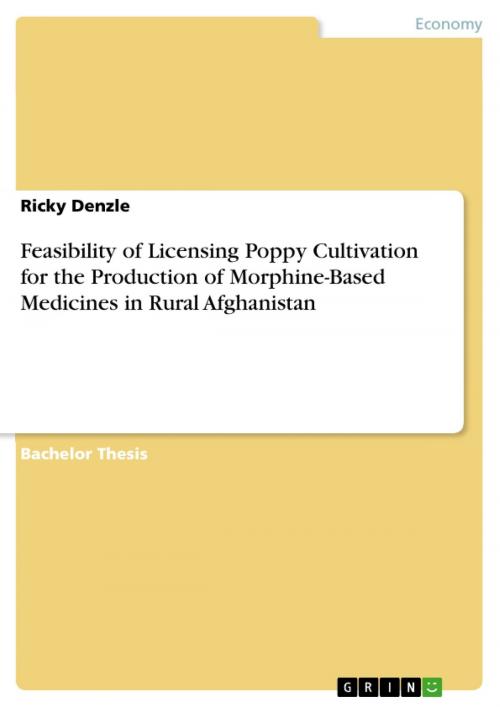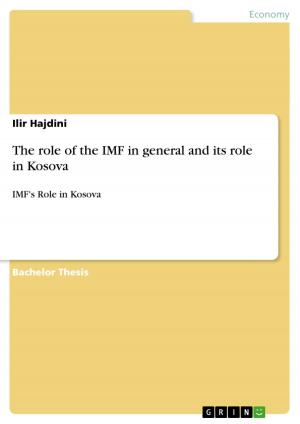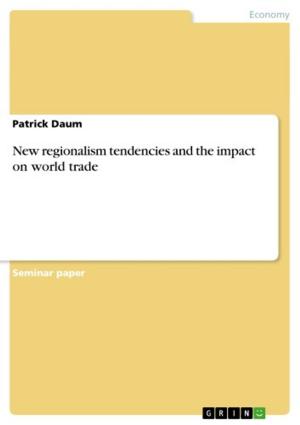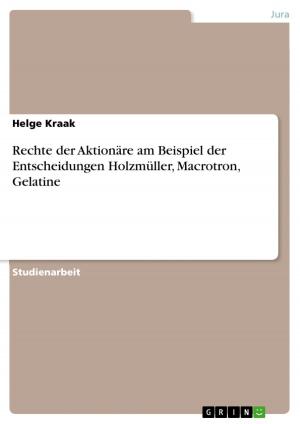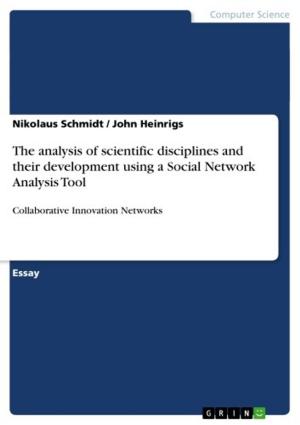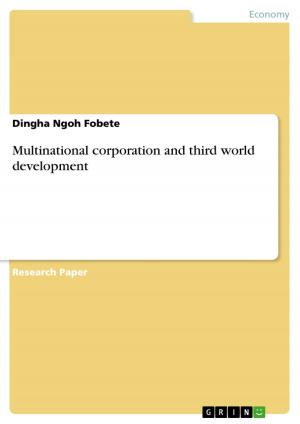Feasibility of Licensing Poppy Cultivation for the Production of Morphine-Based Medicines in Rural Afghanistan
Business & Finance| Author: | Ricky Denzle | ISBN: | 9783640374915 |
| Publisher: | GRIN Publishing | Publication: | July 16, 2009 |
| Imprint: | GRIN Publishing | Language: | English |
| Author: | Ricky Denzle |
| ISBN: | 9783640374915 |
| Publisher: | GRIN Publishing |
| Publication: | July 16, 2009 |
| Imprint: | GRIN Publishing |
| Language: | English |
Bachelor Thesis from the year 2009 in the subject Business economics - General, grade: 8, University of Groningen (Faculty of Economics and Business), language: English, abstract: This exploratory study discusses the feasibility of a licensing system for licit opium cultivation for pharmaceutical purposes in selected areas in rural Afghanistan from various angles and its general implications for the concept of local economic development (LED). Apart from the general architecture of the proposal, this paper will critically reflect whether the propositions have been made under careful consideration of the political and sociological conditions prevalent in Afghanistan presently. It will be argued that this specific project lacks the capabilities to be economically viable if implemented as such; also, it will be hypothesized that the Afghan state still lacks the security and control conditions necessary to make this programme a sustainable success.
Bachelor Thesis from the year 2009 in the subject Business economics - General, grade: 8, University of Groningen (Faculty of Economics and Business), language: English, abstract: This exploratory study discusses the feasibility of a licensing system for licit opium cultivation for pharmaceutical purposes in selected areas in rural Afghanistan from various angles and its general implications for the concept of local economic development (LED). Apart from the general architecture of the proposal, this paper will critically reflect whether the propositions have been made under careful consideration of the political and sociological conditions prevalent in Afghanistan presently. It will be argued that this specific project lacks the capabilities to be economically viable if implemented as such; also, it will be hypothesized that the Afghan state still lacks the security and control conditions necessary to make this programme a sustainable success.
